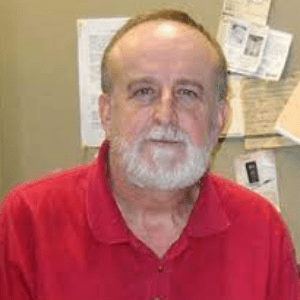Change blindness
Home/ Scientific Sessions /Change blindness
Change blindness
Change blindness is inability to notice significant changes in a visual scene, especially when these changes occur during brief barriers such as a blink, shift in gaze, or a visual cut. This phenomenon exposes the boundaries of human attention and shows that this perception is not as complete as it is felt. Unknown or complex stimuli make people more prone to remembering change, while it is easy to track familiar objects. Research indicates that brain areas such as inferior parietal cortex, middle temporary gyrus, and ventral Occipito-temporal Junction play an important role in detecting visual changes. Change blindness is also associated with neurological conditions such as dementia, Alzheimer’s disease and schizophrenia, which is valuable for both psychology and clinical research.
Related Sessions
1 - Stem Cells Role in Neuro-Biological Treatment
2 - Neurological Disorders and Stroke
3 - Clinical Neurophysiology and Stroke
4 - Neuropsychology and Addiction
5 - Genetics and Epigenetics in Neurodegenerative Disorders
Neuroimmunology and Neurological Infections
7 - Neuropharmacology and Neurochemistry
8 - Brain Injury and Behavioral Neuroscience
9 - Cognitive Neuroscience and Psychology
10 - Neurobiology and Behavior
11 - Neurosurgery and Spine
12 - Paediatric Neurology and Epilepsy
13 - Molecular Genetics and Neurobiology
16 - CNS Injury, Repair and Inhibition, Excitation
17 - Psychology, Cell & Molecular Biology
20 - Ophthalmology and Visual Neuroscience
21 - Neuroscience and Artificial Intelligence
22 - Neuroinformatics and Computational Neuroscience
23 - Human Brain Mapping
24 - Brain Stimulation and Imaging
25 - Cerebral Blood Flow and Metabolism
26 - Molecular Brain Research
27 - Brain Structure and Function
28 - Brain Pathology and Oncology Research
29 - Geriatric Psychiatry and Neurology
Scientific Program
Keynote Speaker - Dr. Zhenhuan LIU (Oral Presentation - In-Person)
Nanhai Maternity and Children Hospital Affiliated to Guangzhou University of Chinese Medicine, China
Keynote Speaker - Dr. Magda Tsolaki - Oral Presentation (Virtual)
Emeritus Professor of Neurology, Aristotle Univesrsity of Thessaloniki, Makedonia, Greece, Chair of the Greek Federation of Alzheimer’s Disease
Keynote Speaker - Dr. Tatsuro Mutoh, MD, PhD, FAAN - Oral Presentation (In-Person)
Department of Neurology, Fujita Health University Hospital, Toyoake, Aichi, Japan
Scientific Program
Keynote Speaker - Dr. Zhenhuan LIU (Oral Presentation - In-Person)
Nanhai Maternity and Children Hospital Affiliated to Guangzhou University of Chinese Medicine, China
Keynote Speaker - Dr. Magda Tsolaki - Oral Presentation (Virtual)
Emeritus Professor of Neurology, Aristotle Univesrsity of Thessaloniki, Makedonia, Greece, Chair of the Greek Federation of Alzheimer’s Disease
Keynote Speaker - Dr. Tatsuro Mutoh, MD, PhD, FAAN - Oral Presentation (In-Person)
Department of Neurology, Fujita Health University Hospital, Toyoake, Aichi, Japan
Committee Members

Kenneth B Storey
Carleton University, Canada

Kindy Mark
University of South Florida, United

Thomas J Webster
Interstellar Therapeutics, United States
Tags




